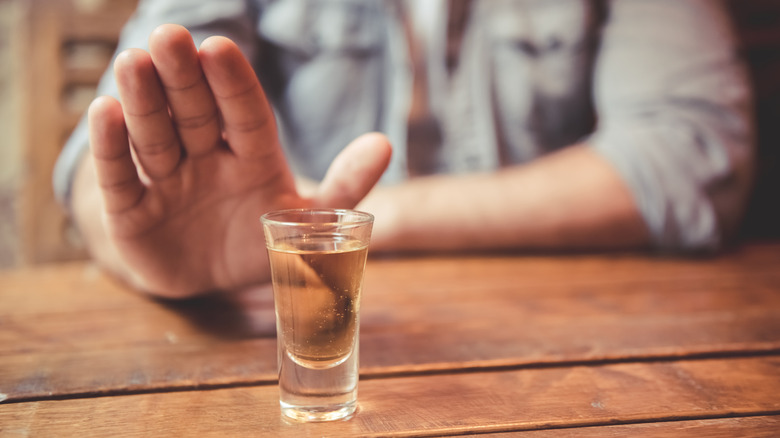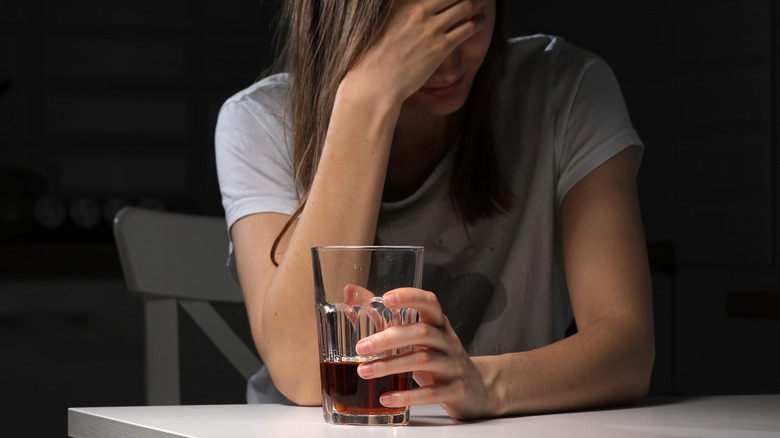Drinking is often associated with relaxation, fun, and socialization. In many ways it’s a part of our culture, as we often find ourselves attending happy hour with colleagues, grabbing a drink with a new date, or sharing a bottle of wine with friends while watching our favorite hit show on Netflix. It’s no wonder then that a 2024 national survey found that 86% of people reported drinking alcohol at some point in their lives and nearly 26% of people over 18 reporting binge drinking in the past month (via National Institute on Alcohol Abuse and Alcoholism). With alcohol being such a prevalent, sociocultural aspect of our lives, should we look past the risks associated with spiking our flavored soda waters or mixing up a classic frozen margarita? Some of those risks may seem like they’re all in our head, like impacts to our mental health, but research suggests it’s not, and it’s worth consideration. Anxiety induced from alcohol consumption is also known as “hangxiety,” according to American Addiction Centers. It’s a common short-term effect of alcohol in which depleted neurotransmitters cause anxiety and unease. Beyond short term effects, how you feel from drinking alcohol may give you clues as to your overall mental health status and help guide important decisions on how often and how much you choose to drink.
How alcohol affects the brain

Alcohol is classified as a sedative that affects the whole nervous system and impacts many of the brain’s important chemicals. Typically in lower amounts of alcohol consumption, the brain produces GABA, the neurotransmitter responsible for promoting feelings of calm and relaxation. Heavy alcohol consumption, on the other hand, can completely deplete GABA stores, which induces anxiety. Additionally, once you stop drinking, the effects on GABA stop as well, causing sometimes painful withdrawal symptoms (via Henry Ford Health System). In addition to affecting GABA, alcohol changes levels of serotonin, affecting the brain up to an entire day after drinking, according to Healthline. If too much alcohol is consumed, you can experience uncomfortable physical symptoms, blackouts, and even brain damage that can lead to increasing levels of anxiety in trying to cope with the symptoms alone. Because alcohol can have such a profound impact on brain activity, long term use may lead to serious mental health conditions.
Who’s affected most?

According to the Henry Ford Health System, alcohol has been found to cause anxiety in certain groups of people, especially those prone to anxiety to begin with. The irony is that many of those individuals use alcohol to try and soothe their anxiety, only to find that it makes it worse after the initial effects of the alcohol wear off. In fact, American Addiction Centers state that anxiety and alcohol use disorders commonly co-occur and can have major negative implications on one’s daily life. Additionally, those prone to depression tend to experience anxiety after drinking. It seems that drinking tends to have a rebound effect, making baseline levels of anxiety and depression worse than before drinking. Knowing if you’re prone to anxiety or depression can help you understand the risks of drinking alcohol. Beyond depression and anxiety, risks are higher for those with panic disorders. In fact, a study by Primary Care Companion to the Journal of Clinical Psychiatry found that as high as 28% of people seeking help for panic disorder also had a history of alcohol abuse.




